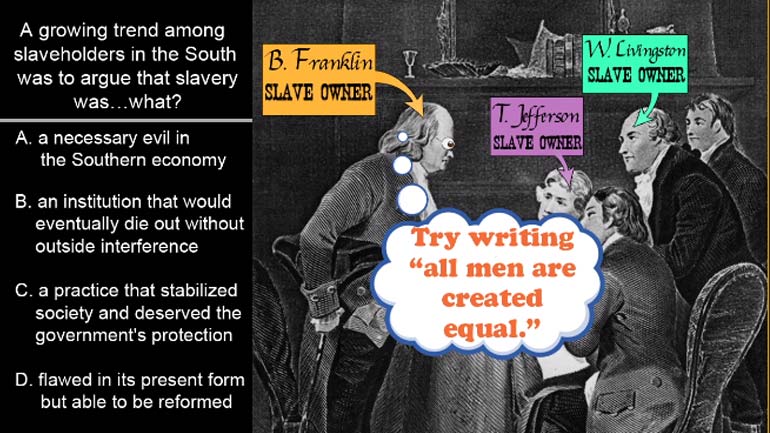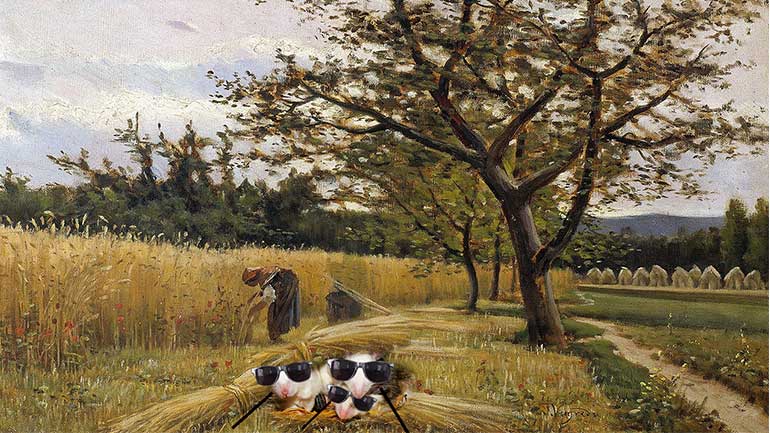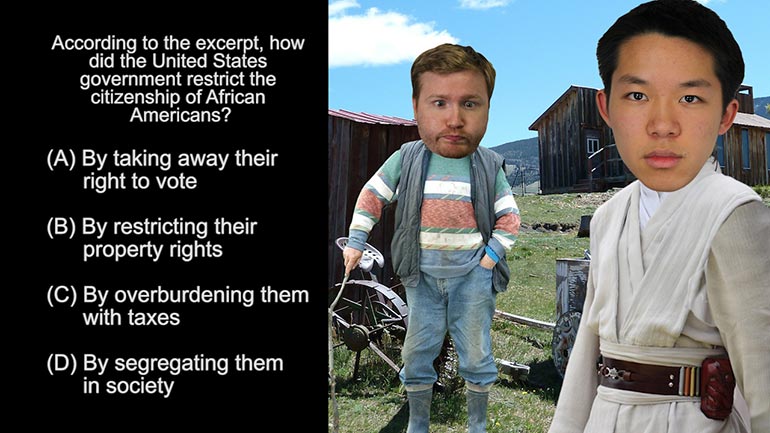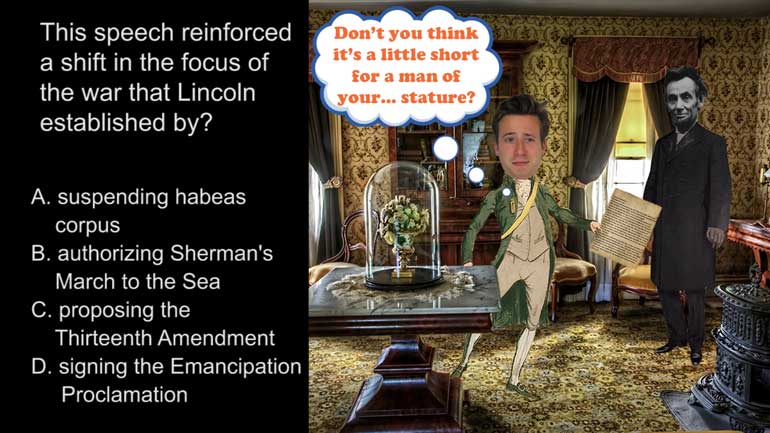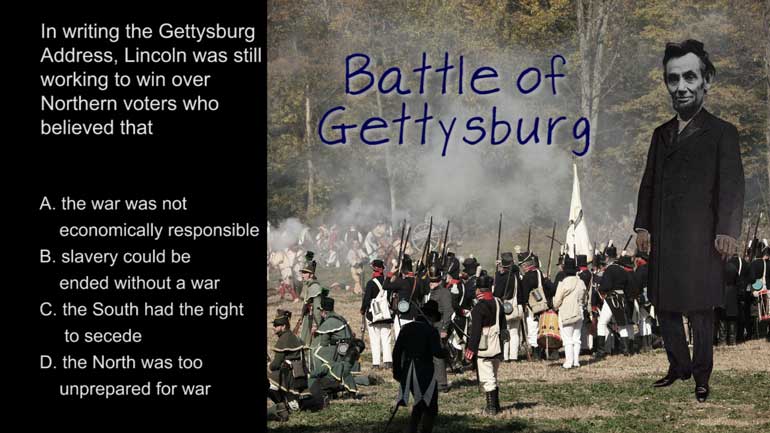ShmoopTube
Where Monty Python meets your 10th grade teacher.
Search Thousands of Shmoop Videos
Period 4: 1800 to 1848 Videos 20 videos
AP U.S. History 4.2 Period 4: 1800-1848. One direct effect of the trend described in the excerpt was...what?
AP U.S. History 3.2 Period 4: 1800-1848. The goals presented in the excerpt have the most in common with which of the following?
AP U.S. History 2.2 Period 4: 1800-1848. Many affluent woman responded to the economic trend that Robinson describes by...what?
AP U.S. History 1.5 Period 4: 1800-1848 231 Views
Share It!
Description:
AP U.S. History 1.5 Period 4: 1800-1848. Southern plantation owners supported slavery in the Louisiana Territory primarily because of what environmental development?
Transcript
- 00:00
[ musical flourish ]
- 00:03
And here's your Shmoop du jour, brought to you by Tobacco Road,
- 00:07
the cloudiest street in the neighborhood.
- 00:09
All right.
- 00:14
Southern plantation owners supported slavery
Full Transcript
- 00:17
in the Louisiana Territory primarily because of
- 00:20
what environmental development?
- 00:23
And here are your potential answers.
- 00:24
[ toilet flushes ]
- 00:28
All right. So what's this question asking?
- 00:30
Well we know that Southern plantation owners
- 00:32
would have supported the expansion of slavery
- 00:34
pretty much anywhere.
- 00:36
But this question makes it sound like there was something related
- 00:38
to the environment that made this new acquisition
- 00:41
particularly acquirable.
- 00:43
So let's check out the answers.
- 00:45
Did plantation owners want slavery in the Louisiana Territory
- 00:48
because of A - the ongoing drought in the West Indies?
- 00:52
Hmm. The weather was pretty normal in the West Indies
- 00:54
at that time, so it's not A.
- 00:57
Did they want slavery in the Territory because of B -
- 00:59
the lack of usable ports along the Atlantic Coast?
- 01:02
Well, actually, the Atlantic Coast had dozens
- 01:04
of major ports. That's how all these colonies
- 01:07
got started in the first place. So that eliminates B.
- 01:10
Were plantation owners supportive of the expansion of slavery
- 01:13
because of D - the rise of plantation farming in New England?
- 01:16
Oh, no way.
- 01:18
New England has never relied on plantation farming.
- 01:20
That was exclusively the South's game. So D is a no-go.
- 01:24
And that means they supported slavery in the Louisiana Territory because of C -
- 01:27
the over-cultivation of arable land in the South.
- 01:30
Tobacco is as bad for the land as it is for your lungs.
- 01:33
And when it's planted year after year, the soil ends up
- 01:36
losing its nutrients, which makes it
- 01:38
inhospitable for crops down the line.
- 01:40
So with all this over-cultivation happening in the South,
- 01:44
plantation owners looked to the new Territories
- 01:46
for more arable land.
- 01:48
So this means that choice C is the right answer.
- 01:50
Well, looks like too much of a good and bad thing can kill you.
- 01:56
[ hiss ]
Related Videos
AP U.S. History Exam 2.45. The journey shown on the map was an example of...what?
AP U.S. History Exam 2.26. This speech reinforced a shift in the focus of the war that Lincoln established by...what?
What did the Spanish messengers bring with them to North America? Hint: you probably wouldn't be thrilled to get this for your next birthday.
AP U.S. History Diagnostic 24. How did the United States choose containment over the National Security Council Report in Latin America?
AP U.S. History Exam 2.25. In writing the Gettysburg Address, Lincoln was still working to win over Northern voters who believed that...what?







